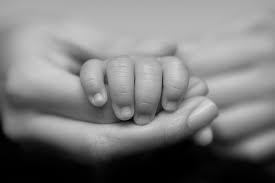Russian Adoption Problems
Another heartbreaking case of a Russian adoption that has gone terribly wrong is currently being judicially reviewed in the United States. Nassau County Surrogate Court has denied a request to join Russia and the United States as parties to an action over adoption of two Russian-born children who allegedly suffer from serious mental disorders, Russian Legal Information Agency (RAPSI) reports
(http://rapsinews.com/judicial_news/20150320/273364065.html).
During the 2007 visit to Russia, the couple was informed that the children had been medically examined , and no problems were found.
However, shortly after moving to the US, the adoptive parents claimed that the children suffered severe mental illness. The couple alleged that it had been scammed in a “bait and switch” scheme.
The adoptive parents supported the children until 2012 emotionally, medically and physically, seeking the help of child psychologists. Eventually, both children were placed in mid-2012 under constant medical supervision. The adoptive parents seek to annul the adoption on the grounds of fraud and inability to build family relations with the children.
The adoption agencies implicated in the case moved to join Russia and the United States Department of State as necessary parties to the action. The court held that the action “is a matter that is solely between the parties already named.” However, the United States Department of State and the Russian Federation are permitted to be witnesses.
Adoption Under the Russian Family Law
The procedure of Russian adoption is set out in sections 124 -165 of the Family Code of Russia, Chapter 29 of Civil Procedure Code and the Federal Act On the State Database of Parentless Children (2001) as well as some other regulatory legal acts.
A prospective parent can apply for information on children available for adoption to a regional or federal operator of the Parentless Children Databank. Applicants can obtain information about the child and his relatives and to get an independent medical assessment of the child.
The adoption applications are generally heard by district courts. However, adoption by foreign nationals and Russian citizens permanently residing abroad are within the jurisdiction of the State Supreme Courts.
The prospective parents must be at least 16 years older than the child. The adoption by unmarried or same-sex couples is prohibited [section 127 of the Family Code]. Adoption may be refused if the applicant’s parental rights were revoked in the past, if they have a criminal conviction for some premeditated crimes and on other grounds set out by section 127 of the Family Code.
It may further be denied for medical reasons, such as tuberculosis, substance abuse and some other health disorders of the prospective parents.
Child adoption applications are determined in closed hearings. The court must take the child’s opinion on the matter into consideration if the child has reached the age of 10. However, it may give weight to younger children’s views as well. The court grants an order for adoption if it finds this to be in the best interests of the child, and the candidates to be fit and financially secure to provide for the needs of the child.
The adoptive parent may give the child a new name, as well as change their birth information [section 134, 134 of the Family Code].
A Russian child adopted by foreign citizens retains their Russian citizenship.
Russian Adoption Ban
In 2013-2014 various Russian family law acts prohibited adoption of Russian children to countries that permit same-sex marriage and states imposing economic sanctions against Russia.


